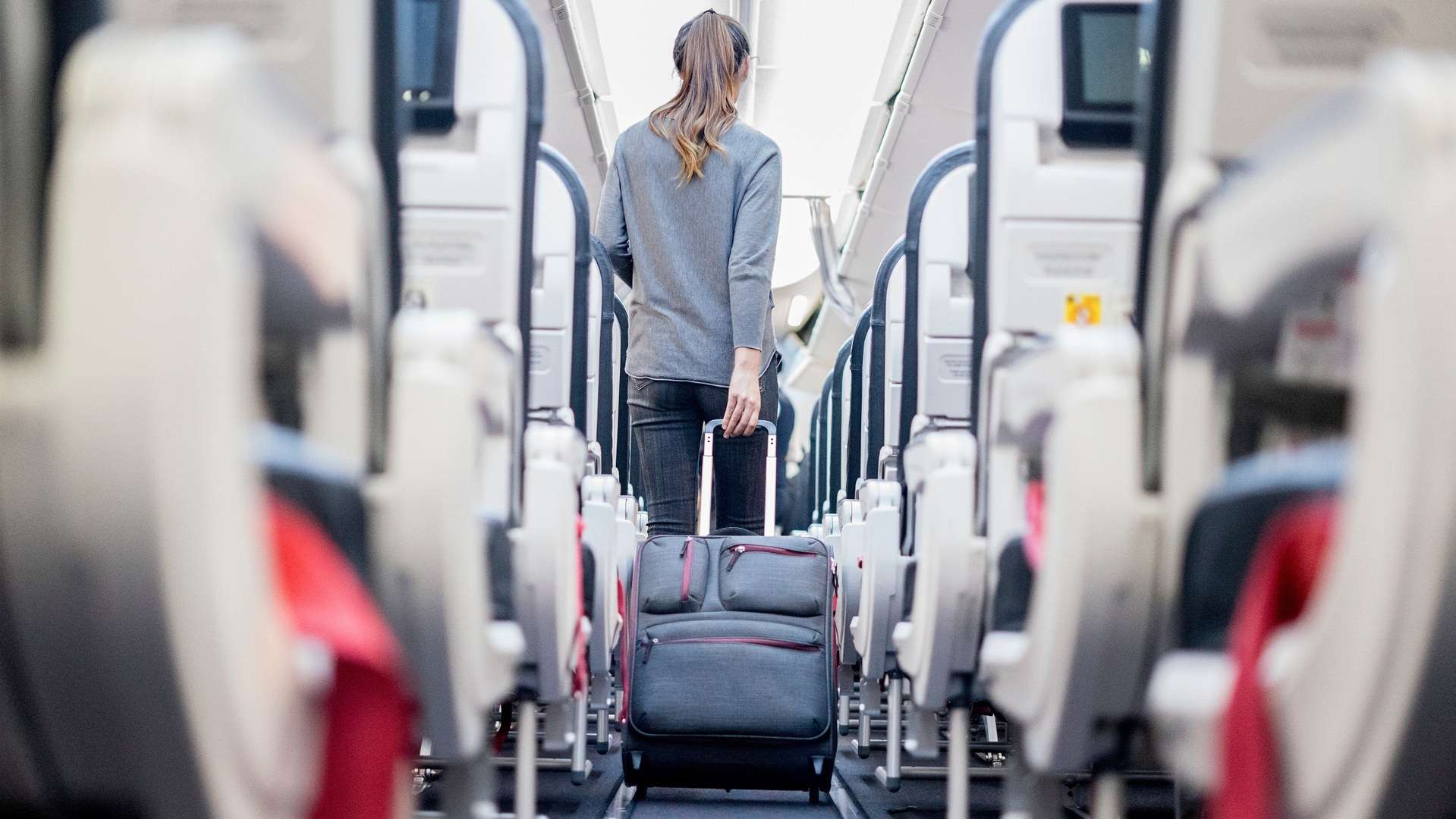10 measures for a carefree vacation despite allergy or intolerance
External editorial

Common allergies in Germany
In the case of an allergy, an overreaction of the immune system takes place, which in the worst case can end fatally - in the so-called anaphylactic shock. This reaction is triggered by allergens, which can take a wide variety of forms.
Among the most common triggers in this country are
- Pollen,
- dust mites,
- animal dander,
- food,
- insect venoms,
- molds
- or so-called contact allergens, which are contained in jewelry or cosmetics, for example.
However, allergy sufferers often only react to specific allergens, i.e. only to certain flower pollen or hair from one type of animal. It is therefore important to determine the triggers in each individual case by means of a medical examination.
Only if those affected know exactly what they are allergic to can they avoid these allergens in everyday life or on vacation. In addition, they can prepare for emergencies in order to react quickly before the allergic reaction becomes life-threatening. This is therefore a topic that should not be taken lightly.

Preventive measures for allergies
Furthermore, preventive therapy can only be initiated if the allergy has been medically confirmed - this is another reason why it is worth seeing a doctor. Nowadays, there are numerous possibilities to alleviate or even prevent allergic reactions before they occur.
These include hyposensitization, a special form of immunotherapy in which the immune system is accustomed to the allergens until it no longer reacts or reacts much less strongly. On the other hand, there is a whole range of medications available, such as antihistamines, which can be used acutely or preventively against an allergic reaction, depending on the trigger and the symptoms.
Medical treatment of allergies is therefore also recommended independently of a planned vacation and minimizes the risk of problems occurring during the stay from the outset.
Differences to intolerance
Again and again, allergies and intolerances are used as synonyms, but there are important differences.
In the case of a food intolerance, there is no reaction of the immune system as in the case of an allergy to certain foods. Instead, the body lacks necessary enzymes or transport proteins to process certain food components.
As a result, gastrointestinal symptoms such as abdominal pain, flatulence or diarrhea develop. These symptoms are not life-threatening - but in many cases they impair the quality of life of those affected. Accordingly, an intolerance usually exists only to certain components of food, such as the lactose in dairy products or the fructose in fruit.
There are also no interactions as in the case of so-called cross-allergies in the case of intolerances, but a person may well have several intolerances. In the case of an intolerance, it is therefore also important to have the triggers clarified by a doctor in order to avoid them or to take countermeasures.

Tips for a vacation free of complaints
Nowadays, allergies and intolerances are widespread, but those affected are not powerless against them. There are many ways to prevent and alleviate discomfort caused by intolerances or allergic reactions, even on vacation. So that this can be enjoyed carefree, the following measures are therefore recommended:
1. take allergy or intolerance into account during planning.
It is not always necessary to select the travel time or destination with allergy or intolerance in mind. After all, those affected are not confronted with the allergen or intolerant food everywhere. It is therefore worthwhile to first make a list of which destinations and activities would be desirable on vacation.
Then it can be checked whether there are any critical factors in this respect. For example, for pollen allergy sufferers, a winter vacation is often possible without any problems, while on a summer vacation the pollen calendar is relevant. In the case of an intolerance, on the other hand, it is usually uncomplicated to cater for oneself in a vacation apartment, while special diets cannot always be taken into account when eating in a hotel.
Proper planning can thus prevent certain inconveniences or risks on vacation. This is exactly why it is so important to clarify in detail what the respective person reacts to and where these triggers may be lurking on vacation.
The easiest way to ensure a carefree trip is to avoid these triggers altogether, for example by choosing a suitable destination, a suitable travel time, a special hotel or the type of food.
2 Selecting special accommodation - and booking in good time
With the hotel an important keyword fell, because there most diverse triggers can become the problem: Animal hair, dust mites, mold spores or allergens in the food are just a few of many examples.
Therefore, there are now accommodations that specialize in the needs of people with allergies or intolerance and make their stay safer and more pleasant in many ways. This applies to both the sleeping quarters and the common areas, because from the bed linen to the floor, special care is taken to ensure hygiene. Likewise, catering can be ordered entirely according to individual needs, which is a great relief on vacation not only in the case of food intolerance, but also in the case of a special diet such as veganism.
Precisely because so many people are affected by allergies or intolerances, however, the demand for such accommodations is high and also in this regard the trend is increasing. It is therefore advisable to book in good time, especially during the peak season. Spontaneous vacations, on the other hand, are only possible to a limited extent with corresponding complaints.

3. check beverages and food carefully
In Germany, allergen labeling on food is mandatory. This means that the most common allergens, such as peanuts or eggs, must be declared on the packaging.
This makes it easier for allergy sufferers to distinguish compatible from incompatible foods. However, this list by no means includes all potential allergens or food components that can trigger an intolerance reaction.
Once again, it is therefore important to know the triggers in the individual case and to recognize them on the packaging if, for example, they are shown as Latin names or E numbers.
However, at the latest when the food is served unpackaged, for example in a restaurant, or where there is no corresponding labeling requirement abroad, it can become difficult to distinguish compatible from incompatible foods.
The language barrier also often plays a role in this regard on vacation. Learning your own allergens in the local language is therefore an important first step, so that you can find them on packaging or ask the service staff in the restaurant or hotel.
Allergy sufferers or people with intolerance should make sure several times that the food is tolerated, because sometimes even the smallest traces, for example of nuts, can lead to life-threatening reactions in the case of a strong allergy. In case of doubt, as already mentioned, self-catering is therefore the better choice.
In numerous countries, especially within Europe, those products are available from well-known supermarkets from the same brands that most Germans also know from home - and which they are sure they can tolerate.

4. pack medication for prevention and acute cases.
Despite these precautions, it can never be completely ruled out that contact with an allergen or an intolerable food component will occur during the vacation. Furthermore, in individual cases an allergic reaction may occur in the absence of allergens.
It is therefore important to always be prepared for acute cases, despite taking precautions. Various preparations can be used for this purpose in consultation with the doctor. These are often so-called antihistamines. In addition, no allergy sufferer should be without a special emergency kit for anaphylactic shock in their luggage.
But such medications can also be used preventively to ensure a carefree vacation - even if those affected come into contact with the allergen or with intolerable foods. For hay fever, for example, special nasal sprays can have a preventive effect. In the case of lactose intolerance, the missing enzyme can be taken, and in the case of histamine intolerance, great success is achieved by taking diamine oxidase.
It is therefore worthwhile to clarify the relevant options before the trip and to try them out for effect and tolerance. In this way, the trip can be started without worries.
However, it is not advisable to take a new preparation for the first time while traveling due to possible side effects or hypersensitivity reactions. Vacation is not the right place for "experiments".
5. pay attention to special features on arrival
Taking medications across national borders or on an airplane can cause problems. In the case of air travel, this is especially true if they are transported in hand luggage.
In such cases, it is important to leave the preparations in their original packaging. Ideally, a doctor's note in English or in the language of the destination country should also be carried, which makes it clear which medication is involved and why it is necessary.
On the plane, all medications should also be carried in a transparent film. However, this is not the only special feature when traveling to or returning from a trip as a person with allergies or intolerances.
There may be other obstacles, such as allergens on the plane or incompatible food ingredients in the food served there. In addition, some means of transportation, sometimes even airplanes, allow pets in the passenger compartment, which can also become a problem for allergy sufferers.
Therefore, allergy sufferers should always have their medication and emergency kit handy. When booking, it may be worth asking the airline, travel agent or other suitable contact if, for example, pets are allowed or if it is possible to order special food.
As a rule, a solution can then be found, such as placing them as far away from animals as possible or taking your own snacks. In case of doubt, traveling on your own, for example by car, is an easier and safer alternative. Transportation options should also be considered accordingly when choosing a destination.

6. self-catering (also) on the road
In the case of intolerance or an allergy to certain foods or mold spores, it can make sense to take care of your own catering. This applies not only during the arrival and return journey or in the vacation apartment, but also during excursions and activities on vacation.
This is because it is almost impossible to check the ingredients of snacks bought at street stalls, for example. In addition, a lack of hygiene can become a problem - even for non-allergy sufferers.
It is therefore advisable, for example in the case of histamine intolerance or food allergies, to buy suitable food in the supermarket and to pack it, so that in case of doubt, you have a guaranteed compatible food on hand.
Unprocessed foods consisting of few ingredients, such as bread or cheese, are recommended for this purpose. The more natural the products, the lower the risk, even abroad, that they contain unexpected ingredients that can trigger an allergic or intolerance reaction.
7. minimize dust mites in the hotel room
Once on vacation, dust mites in accommodations can become a problem for allergy sufferers. This even applies to special allergy rooms or hotels. Nevertheless, it is worthwhile to book such, because there the danger of an impact with house dust mites is at least clearly smaller.
In combination with own precautionary measures the chances stand then well to be able to spend the vacation complaint-free. Helpful for it is the use of the following utensils:
- Mite spray to rid the textiles in the accommodation of potential dust mites - especially the bed.
- Travel towel especially for allergy sufferers to place over the bedding on site, since the mite spray removes the dust mites themselves, but not their droppings. Many allergy sufferers are sensitive to this.
- Allergy sleeping bag as required indoor or outdoor version with appropriate lining.
- Vacuum bag to wrap textiles such as the sheet or sleeping bag in, so that no dust mites can get into the luggage during the journey or already at home.
- Travel pillows, if necessary inflatable for easier transport, so as not to have to have direct contact with the unfamiliar textiles in the accommodation, especially in the sensitive facial area.
Another way to make the vacation comfortable despite house dust allergy is to choose a destination at a higher altitude. At altitudes above 1,500 meters, dust mites are hardly ever found; at altitudes above 1,800 meters, accommodations are usually completely mite-free. A trip to the mountains is therefore worth considering for those affected. The same applies to pollen allergies.

8. properly ventilate the accommodation
In the case of numerous allergies, such as those to pollen, dust mites or mold spores, proper ventilation can alleviate or even prevent possible symptoms. In any case, the best way to do this is to ventilate the room as quickly and completely as possible. In this way, potential allergens can be removed from the interior.
In the case of a pollen allergy, however, there is a risk that these allergens will enter the living space during ventilation and accumulate there. In such cases, it is better to ventilate at night, when no pollen or at least less pollen is flying.
If you are allergic to dust mites or mold spores, on the other hand, you should also ventilate regularly during the day in order to keep the exposure of your sleeping quarters to the allergens as low as possible while you are on vacation.
It can also be useful to temporarily remove houseplants from the accommodation or have them removed and generally choose a destination with a rather dry climate. This is because high humidity promotes typical allergens such as mold spores.

9. establish adequate insurance coverage.
Despite all these precautions, it is never possible to say with certainty whether medical treatment will not become necessary on site, whether due to the allergy or other causes.
An international health insurance policy that also covers potential treatment for allergic reactions or discomfort due to an intolerance is therefore a must for any trip. It should be optimally adapted to individual needs and to the potential dangers at the travel destination.
For example, anyone staying in the mountains should accordingly choose a policy that also includes mountain rescue. In this way, allergy sufferers can enjoy a safe vacation despite the increased risk. Nevertheless, it makes sense, especially in the case of severe allergies, for example to wasp stings, to always stay close to civilization as well as to rescue routes in order to receive quick help in emergencies.
10. make a checklist and tick it off
When traveling with allergies or intolerances, there are some special features to consider - then a carefree vacation is quite possible. To ensure that those affected do not forget anything important, it is advisable to create a checklist and check it off point by point before each trip.
There is an official template for this, which proves to be a good starting point. However, it should be adapted individually, depending on allergies or intolerances, the country of travel, means of transport and other factors.
Conclusion
Allergy sufferers and people with an intolerance must expect certain restrictions on vacation in many cases. How serious these are depends on various factors such as the type and severity of the reaction to the respective triggers.
Some sufferers can spend any vacation free of symptoms, so to speak, with the right preventive medications, while others must pay close attention to which destination they choose and which accommodation. In this regard, everyone must gather their own experience in consultation with their doctor and find out what works in each individual case.
In the case of particularly severe allergies, which mean a great restriction on vacation as well as in everyday life, preventive treatment can be worthwhile in any case, for example with antihistamines or in the form of hyposensitization. It is therefore advisable to check the individual possibilities in order to enjoy the vacation free of complaints or worries in the future.
Sources
Kurt Weber
Last updated on 25.05.2022
Your personal medication assistant
Browse our extensive database of medications from A-Z, including effects, side effects, and dosage.
All active ingredients with their effects, applications, and side effects, as well as the medications they are contained in.
Symptoms, causes, and treatments for common diseases and injuries.
The presented content does not replace the original package insert of the medication, especially regarding the dosage and effects of individual products. We cannot assume liability for the accuracy of the data, as the data has been partially converted automatically. Always consult a doctor for diagnoses and other health-related questions.
© medikamio